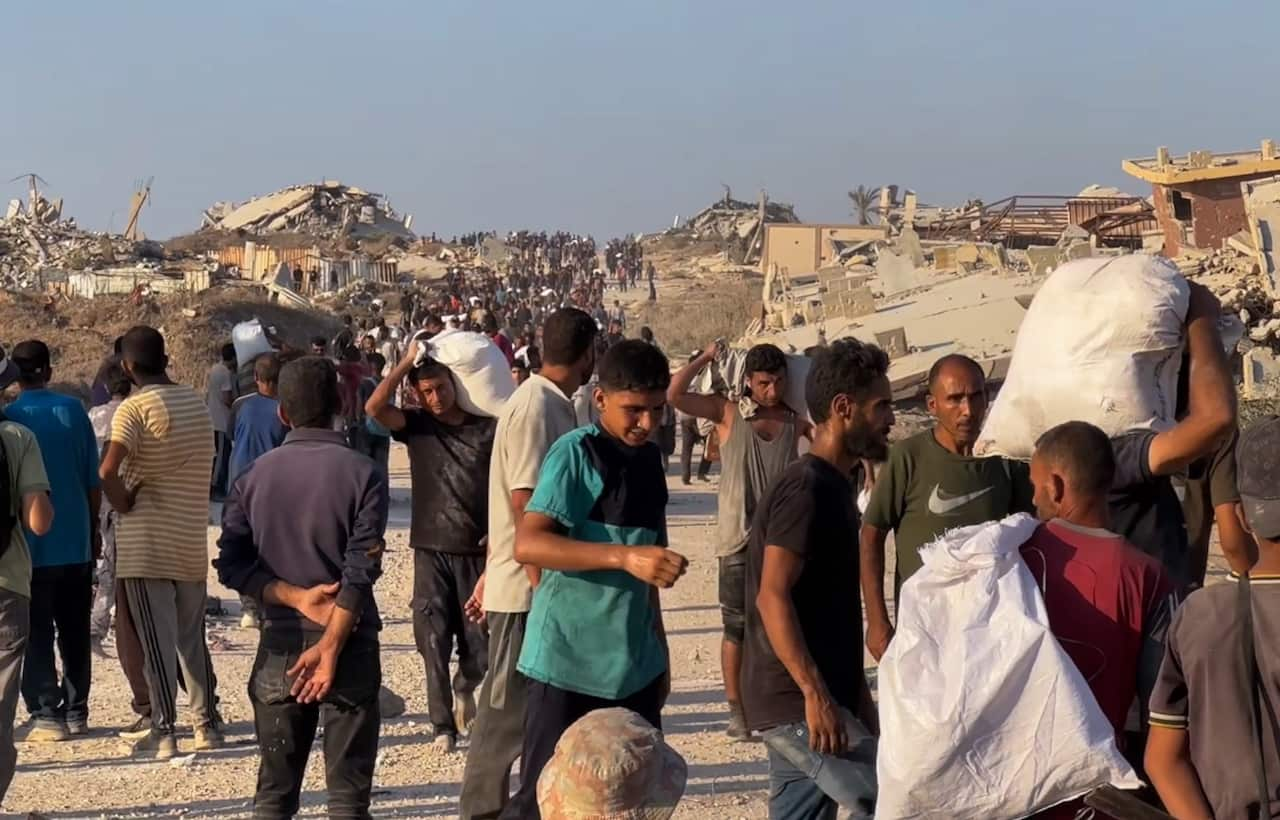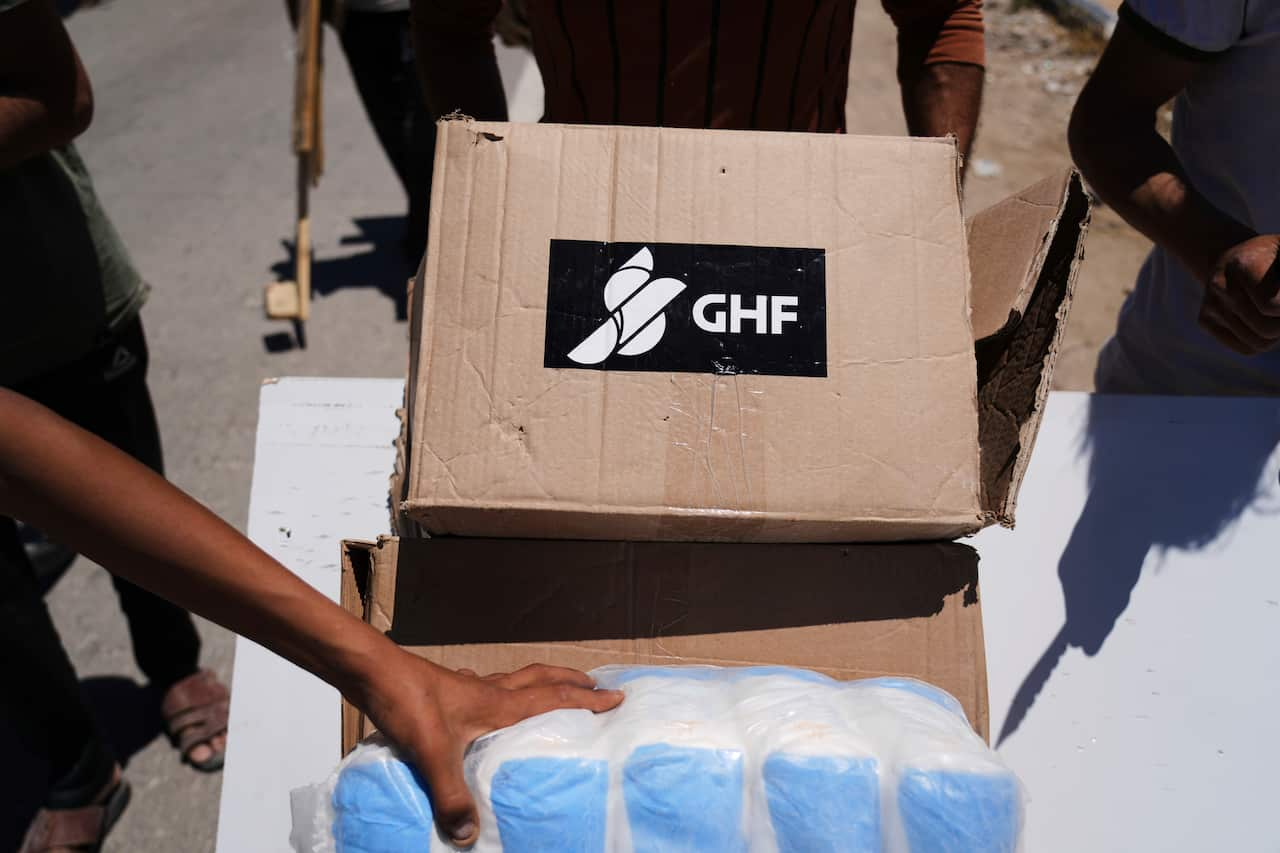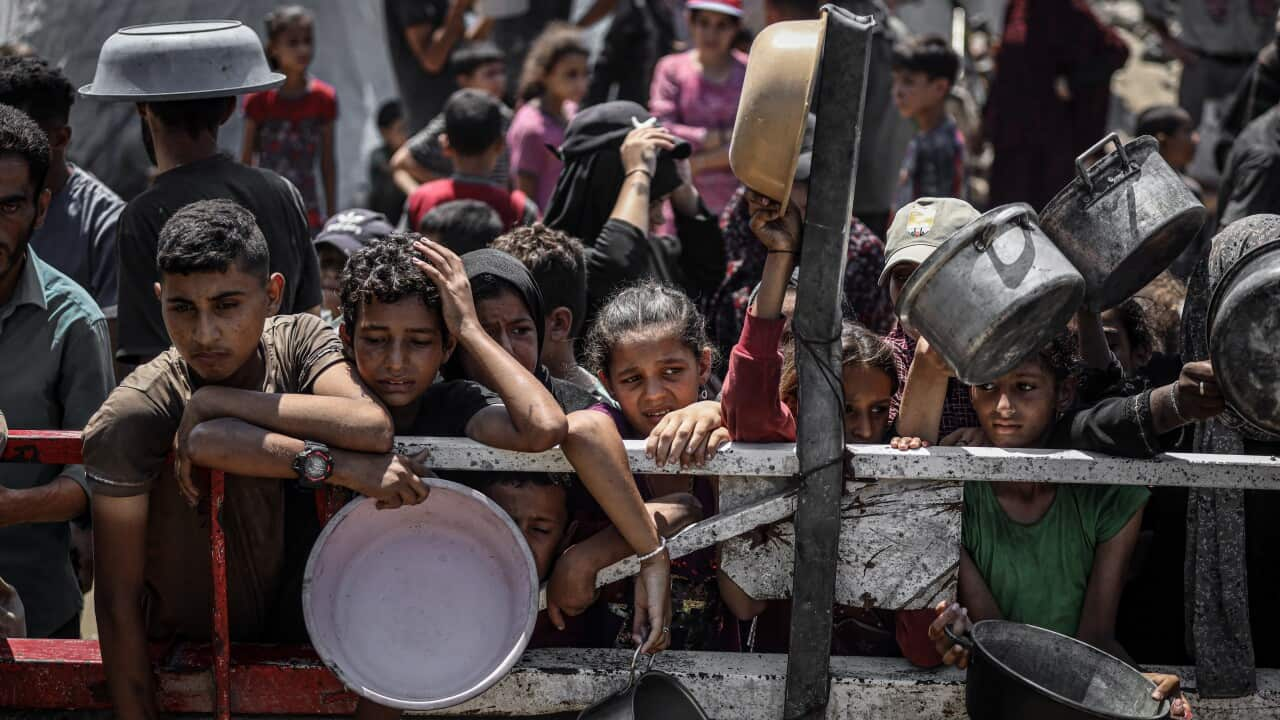Images of gaunt children and families clutching empty pots are painting an increasingly grim picture of Gaza, where hunger is now claiming lives.
Human rights groups are growing increasingly alarmed over the humanitarian situation in Gaza, which has been under Israeli bombardment since 7 October 2023 after Hamas — the political and military group that rules Gaza — launched a surprise attack on southern Israel — marking a significant escalation in a long-running conflict.
More than 100 international aid organisations and human rights groups on Wednesday said in a joint statement that "mass starvation" is spreading in Gaza and urged governments to step in and "stop waiting for permission to act".
"The hunger situation in Gaza is deteriorating at a pace we have never seen before," Unni Krishnan, the global humanitarian director of Plan International, which was among the signatories of the statement, told SBS News.
"Mothers are telling us that they are often forced to choose which child to feed.
"We are talking about hundreds of thousands of people, especially the most vulnerable, such as children and pregnant women, at extreme risk. This must stop."
On Wednesday, it was reported that 15 people, including a six-week-old baby, starved to death in 24 hours in Gaza, according to doctors, linking this to a wave of hunger that persisted for months.
Since the October 7 attack, at least 101 people, including 80 children, have died from hunger, with most fatalities occurring in the last few weeks, according to Palestinian officials.
On the weekend, the United Nations (UN) World Food Programme (WFP) warned that "Gaza's hunger crisis has reached new levels of desperation".
"Malnutrition is surging with 90,000 women and children in urgent need of treatment. Nearly one person in three is not eating for days," the WFP said.
The reports came amid UN officials, aid groups and experts' warnings in recent months that Palestinians are on the brink of famine.
How is famine declared?
According to the Integrated Food Phase Security Classification (IPC), the leading global hunger monitoring body, famine is defined as "extreme food deprivation".
The IPC defines five distinct phases of food security, ranging from minimal (Phase 1) to famine (Phase 5).
Robyn Alders, a food security expert and honorary professor at the Australian National University (ANU), told SBS News: "This is how it's been defined in order to help international agencies make decisions about how they allocate their resources to deal with priorities."
Famine, the most severe form of food insecurity, is only declared when at least two people per 10,000 die daily of starvation, 20 per cent of households face extreme food shortage, and 30 per cent of children are acutely malnourished.

Last year, the IPC announced that a region can be deemed to be in "famine with reasonable evidence" if two out of the three criteria have been met and it is likely that the third has also been crossed.
While the IPC serves as a mechanism to assess whether a famine is occurring or likely to occur, it generally does not issue official declarations. Instead, UN officials and governments usually release formal statements based on IPC analyses.
Alders said the definition "is independent of the driver" of famine.
"There can be natural disasters that lead to failure of food production ... Or as we know, if we read history, that food shortages have been used as weapons of war, basically over thousands of years."
Last year, famine was declared in parts of North Darfur, Sudan. Previously, Somalia experienced a famine in 2011, and South Sudan faced similar crises in 2017 and 2020.
Why has famine not been declared in Gaza?
In war-torn Gaza, which is in a deep humanitarian crisis, famine has not been declared yet.
The IPC had previously forecast that from May to September, 470,000 people in Gaza would face famine (Phase 5), one million would experience emergency food security levels (Phase 4), and the remaining 2.1 million people would be in crisis (Phase 3).
Krishnan from Plan International said the lack of declaration of famine in Gaza is related to the lack of accessibility to data.
"The definition of famine is based on data. The data is not available right now, but there is no conclusion that the data doesn't exist, except that we are not able to collect it," he said.
"Because the absence of people who could collect primary data who are not allowed to go in [Gaza], resulting in a situation where they're not able to declare [famine]."
Some experts argue that, despite a lack of data, famine already exists in Gaza.
Amra Lee, a humanitarian practitioner and researcher at ANU, told SBS News: "Given the data on a hundred dying of starvation over the past or since May, we can assume, and experts have already assessed, that famine is happening in Gaza."
"The problem right now in Gaza is not the declaration of famine. The problem right now in Gaza is that insufficient aid is getting into the strip [and] Israel, preventing the aid, getting into the strip," the former head of program for the WFP Pacific said.
"I can see the famine risk has been there for a while, and it's important, but we need to look at what's not being done to avert the famine."
Food supplies '20 minutes' away from Gaza
Lee said one of the reasons behind the worsening situation for Palestinians is the Gaza Humanitarian Foundation (GHF) program, which started in May after Israel halted all aid deliveries to Gaza in early March.
The GHF bypasses traditional aid channels, including the UN, which says the US-based organisation is neither impartial nor neutral.
On 15 July, the UN said it had recorded 875 people who had been killed in Gaza while trying to get food in recent weeks, with 674 of them killed in the "vicinity of GHF sites".
Earlier that month, Israel acknowledged "incidents in which harm to civilians who arrived at distribution facilities was reported".
It said Israeli forces had been issued new instructions following what it called "lessons learned".
"As many have warned and have since been proven, this foundation did not have a humanitarian character. It is serving a political and military agenda," Lee said.
"We need specialised experts who know how to do this ... [and] sort of reinforce national health systems to avert the famine that is occurring at risk of deepening.
"We need to revert to principled aid delivery, the blockade needs to be lifted, and aid needs to reach the strip at the scale needed."

In their joint statement, the humanitarian and aid organisations also criticised the GHF and said that "tons" of aid were in warehouses just outside Gaza, but Israel's government was restricting its entry.
Krishnan told SBS News: "On the other side of Rafah and Gaza in Egypt and elsewhere, there are hundreds of trucks that are waiting with food supplies, which could get into Gaza within 20 minutes."
"Hunger has always been a solvable problem ... Except [for] the complete siege that has been going on from the Israeli Defence Forces."
On Wednesday, Israeli government spokesperson David Mencer rejected such claims and accused the UN and its partners of not collecting the large quantities of food and other essentials that were cleared and waiting on the Gaza side of the border, saying "aid has been flowing into Gaza".
He also said there was "no famine caused by Israel" and alleged that there was a "man-made shortage engineered by Hamas", who he accused of stealing aid — a claim that the establishment of the GHF was in part based on and one Hamas has denied.
For the latest from SBS News, download our app and subscribe to our newsletter.

